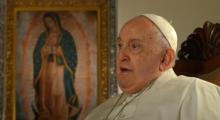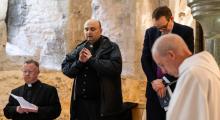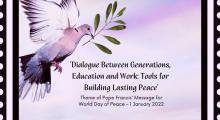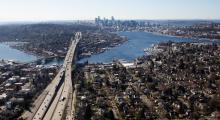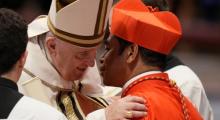Issued by the Catholic Center for Studies and Media - Jordan. Editor-in-chief Fr. Rif'at Bader - موقع أبونا abouna.org
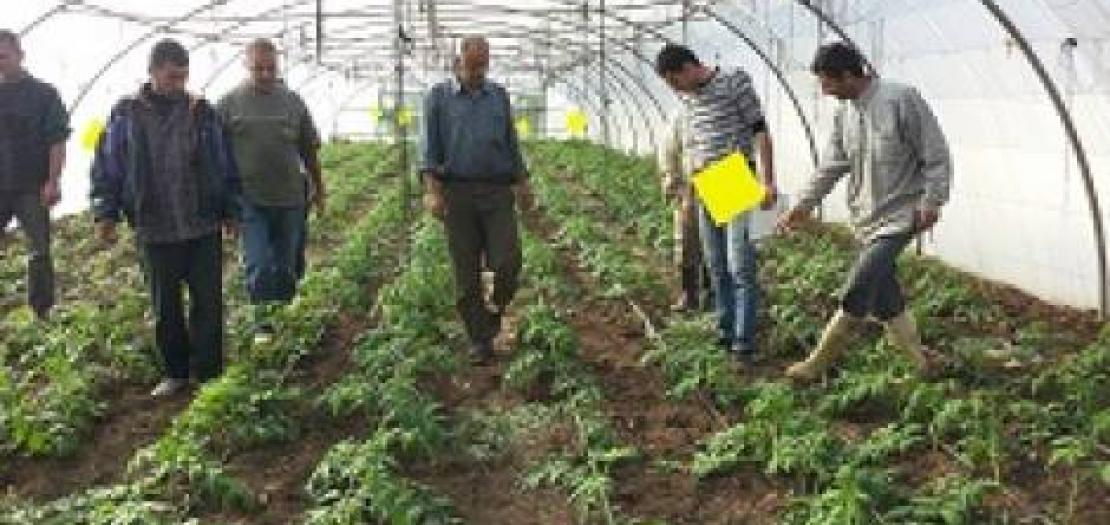
In an address February 14 to the 5th Geneva Interfaith Dialogue on the theme “Loving one’s Neighbor”, the Permanent Observer of the Holy See to the UN and Other International Organizations in Geneva, Archbishop Ivan Jurkovič, decried the over $1.8 trillion the world spent on arms in 2019.
Following is the full text of Archbishop Jurkovič’s address:
First of all, let me express my gratitude to you and the conveners of this important initiative, as well as the other panelists, for their contributions to promote interfaith dialogue and peaceful coexistence among peoples.
I would like to take this occasion to highlight three main issues that are related to today’s discussion: 1) the value of human fraternity; 2) welcoming migrants and refugees; and 3) the importance of disarmament in the common quest to peace.
1) Human fraternity
When I received the kind invitation to participate in this panel, the first idea that came to mind was the Document on Human Fraternity for the World Peace and Living Together, co-signed by Pope Francis and the Grand Imam of Al-Azhar in AbuDhabi on 4 February 2019.
Last week, we celebrated the first anniversary of this historic declaration, which not only brings closer together people of different faiths, but that also conveys a strong message to the entire world: that we must consider and treat all human beings as brothers and sisters.
As its inspiring introduction reads:
“Faith leads a believer to see in the other a brother or sister to be supported and loved. Through faith in God, who has created the universe, creatures and all human beings (equal on account of his mercy), believers are called to express this human fraternity by safeguarding creation and the entire universe and supporting all persons, especially the poorest and those most in need.”
In the face of growing selfish, individualistic and even extremist tendencies, I believe that it is of the utmost importance to emphasize the spirit and exhortation contained in the Document on Human Fraternity to “reconciliation and fraternity among all believers, among believers and non-believers, and all people of good will.”
Fraternity must not be exclusive to a single group, community, culture, religion, but must be inclusive of all.
Fraternity can be the dynamic, as the Document suggests, by which we overcome obstacles and build bridges of coexistence for a better world.
As Pope Francis said: “There is no alternative: either we will build the future together or there will be no future.”
It is therefore our common responsibility to translate these words into reality, adopting and applying these principles in everyday life.
2) Welcoming migrants and refugees
The second image that came to my mind when preparing my intervention was that of the bronze and clay sculpture entitled “Angels Unawares” that was unveiled by Pope Francis in St. Peter Square last September on the occasion of the 105th World Day of Migrants and Refugees.
The sculpture depicts a group of migrants coming from different social and geographical contexts and from diverse historical periods.
On a raft, shoulder to shoulder, each close to the other, these figures represent the need for welcoming, solidarity, and charity.
In an era characterized by forced migrations, discrimination, persecutions, conflicts, and natural disasters, we have to make sure that nobody is marginalized or excluded; especially the poorest and most disadvantaged ones who often carry the heaviest burden of hardships.
For the Catholic Church, it is precisely here that our faith is tested: as Pope Francis stated, we demonstrate our faith through works of charity, but the highest form of charity is the one shown to those who are unable to reciprocate.
This is not just about migrants: this is about the human family as a whole. The very same solidarity and openness should also be devoted as well to our most immediate neighbors.
Too often we forget about our brothers and sisters who live next-door, overlooking their sufferings and afflictions, simply because we are always so busy and focused on our own interests.
May we be neighbors to one another and love and respect strangers in the same way we love our family and friends.
3) Disarmament and the common quest for peace
The third idea that I had was that of the common quest for peace. While perhaps this may be largely unknown to many, the Holy See, inspired by the teaching of universal fraternity and of justice and peace contained in the Gospel, has often encouraged – and continues to do so – the international community to be resolute in promoting effective disarmament and arms control negotiations.
Free to choose peace over violence and fear, humans throughout history have often succumbed to the temptation of power and the search for a world order imposed by the force of arms.
In such a spurious quest, which utterly disregards the precept to “love thy neighbor”, the cost in human lives has been tragic and it continues to be so.
Regrettably, there is a deep chasm that separates commitments from actions in the field of disarmament, often forgetting that such commitments have a real impact on people, especially in areas of conflicts.
It is for these reasons that, in order to reaffirm the centrality of the human person and the preeminent and inherent value of life and human dignity, the Holy See has acceded to and ratified nearly every instrument relating to arms control and disarmament.
While recognizing that States have the right and duty, to defend and protect their people and to ensure their safety, that does not mean that everything is acceptable in the pursuit of security: certain fundamental ethical, humanitarian, and legal principles must be adhered to by everyone, with no exceptions.
Pope Francis, in particular, has taken a strong position on the issue of nuclear weapons. In his recent visit to Nagasaki, a city full of symbolism in this regard, he recalled that “one of the deepest longings of the human heart is for security, peace and stability. The possession of nuclear and other weapons of mass destruction is not the answer to this desire; indeed, they seem always to thwart it. Our world is marked by a perverse dichotomy that tries to defend and ensure stability and peace through a false sense of security sustained by a mentality of fear and mistrust, one that ends up poisoning relationships between peoples and obstructing any form of dialogue.”
Indeed, how can we love one’s neighbor when over 1.8 trillion USD were spent on military expenses last year while a modest amount was allocated to humanitarian aid and projects for integral development?
Conclusions
The three examples that I wanted to share with you: 1) human fraternity; 2) welcoming migrants and refugee as well as those who are suffering; and 3) the common quest for peace, illustrate the need to open our hearts to hope, to protect one another and to walk together in the understanding that we share a common destiny.
However, before I conclude my intervention, I would be remiss if I failed to mention another issue which is of the utmost importance for Pope Francis and which is very much linked to today’s discussion: the care for the environment, our Common Home.
Loving one’s neighbor also entails caring for our common planet.
Pope Francis repeatedly denounces the widespread degradation of the natural environment and disregard for human life due to an increasingly common “throwaway culture” that places no value on the needs of others.
I wish to recall the importance of understanding that the human environment and the natural environment deteriorate together; we cannot adequately combat environmental degradation unless we attend to the causes related to human and social degradation.
Thank you for your attention.


